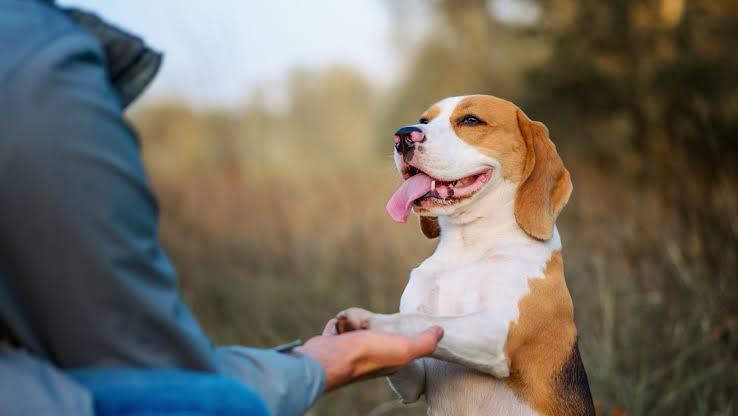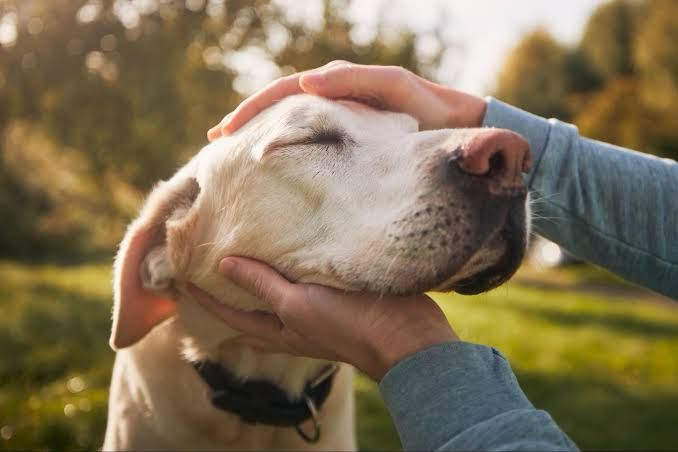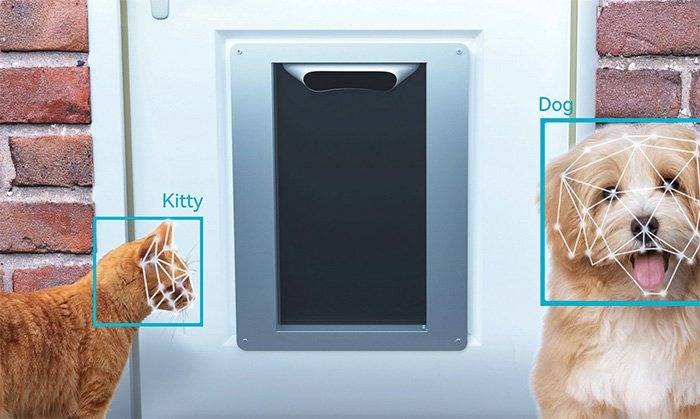
The Power of Dogs in Strengthening Human Relationships
Dogs have long been considered humans’ best friends, and their influence extends beyond companionship. They play a significant role in strengthening human relationships by fostering social interactions, reducing stress, and encouraging emotional bonding. Whether within families, among friends, or in communities, dogs have the power to bring people closer together. One of the primary ways dogs enhance human relationships is by acting as social connectors. Dog owners are more likely to engage in
🐶 Pet Star
37 min read · 23, Mar 2025

Introduction
Dogs have long been referred to as "man's best friend," and for good reason. These loyal companions offer unconditional love, emotional support, and companionship that enrich human lives in countless ways. Beyond their individual bonds with humans, dogs also play a crucial role in strengthening relationships between people, fostering social connections, and enhancing emotional well-being. Whether within families, friendships, romantic relationships, or even communities, dogs serve as catalysts for stronger human bonds. This article delves into the profound impact of dogs on human relationships and how they help create deeper and more meaningful connections. Dogs have long been regarded as loyal companions to humans, but their influence extends far beyond companionship, playing a significant role in strengthening human relationships in various ways. The presence of dogs fosters emotional connections, enhances social interactions, and promotes a sense of unity within families, friendships, and even communities. One of the most remarkable aspects of dogs is their ability to provide unconditional love and emotional support, which strengthens bonds between people by fostering empathy and compassion. Families that own dogs often experience a sense of togetherness as they engage in activities such as walking, playing, and caring for their pets, which encourages communication and shared responsibilities. Additionally, dogs serve as social catalysts, helping individuals connect with others by initiating conversations and interactions in public spaces like parks, neighborhoods, and pet-friendly events. This is particularly beneficial for introverted individuals or those who struggle with social anxiety, as dogs create a common ground for communication, making it easier for people to build friendships and relationships. Moreover, therapy and service dogs play a vital role in strengthening relationships by providing emotional support to individuals with physical or mental health challenges, indirectly improving their interactions with others. For example, a service dog assisting a person with PTSD or anxiety can enhance their confidence and ability to engage in social situations, thereby improving their relationships with family, friends, and colleagues. Dogs also have a profound impact on romantic relationships, as couples who own dogs together often develop stronger bonds through shared responsibilities and mutual affection for their pet. Studies have shown that pet ownership can increase feelings of trust and security between partners, as caring for a dog requires teamwork, compromise, and emotional investment, all of which are essential for a healthy relationship. Additionally, dogs help strengthen intergenerational relationships by serving as a bridge between different age groups, bringing grandparents, parents, and children together through shared experiences of pet care, storytelling, and play. The presence of a dog in a household often leads to increased physical activity, as daily walks and outdoor play encourage family members to spend more time together, fostering a healthier and more active lifestyle. Furthermore, dogs have been known to improve mental health, reducing stress, anxiety, and depression, which in turn positively affects personal relationships by making individuals more emotionally available and resilient. The companionship of a dog can provide comfort during difficult times, such as grief, loneliness, or personal hardships, allowing individuals to cope better and maintain stronger relationships with their loved ones. In workplaces, therapy and emotional support dogs are increasingly being introduced to reduce stress, improve teamwork, and create a more positive and collaborative environment, thereby strengthening professional relationships. Similarly, in educational settings, therapy dogs help students develop social skills, improve emotional regulation, and build stronger peer relationships by providing a sense of comfort and security. Dogs also play an essential role in community-building efforts, as dog-friendly events, pet adoption drives, and neighborhood dog-walking groups encourage socialization and the formation of new friendships. Rescue and shelter dogs, in particular, create opportunities for individuals to come together for a common cause, strengthening bonds through acts of kindness, volunteer work, and advocacy for animal welfare. Additionally, dogs have the unique ability to sense human emotions and respond accordingly, which fosters deeper connections and understanding between pet owners and their loved ones. Their intuitive nature helps them provide comfort during stressful situations, often acting as silent supporters who offer warmth and companionship when words are not enough. The responsibility of owning a dog also teaches valuable life lessons, such as patience, commitment, and empathy, which translate into improved human relationships. Children who grow up with dogs tend to develop strong emotional intelligence and nurturing qualities, which positively impact their ability to form and maintain relationships throughout life. In many cases, dogs have even played a role in helping individuals overcome trauma or rebuild trust in relationships, as their unwavering loyalty and affection provide a sense of security and stability. The act of caring for a dog can also reduce selfish tendencies, as it requires selflessness, attentiveness, and dedication, qualities that naturally extend to human relationships. Additionally, research suggests that the presence of dogs can increase the production of oxytocin, the "love hormone," which enhances feelings of attachment and bonding between humans. This biological response further solidifies the role of dogs in strengthening relationships by promoting positive emotions and reinforcing social connections. The power of dogs in relationship-building is evident across cultures and societies, as they have been trusted companions in households, therapeutic settings, and even military and police units, where their loyalty and companionship create unbreakable bonds. Furthermore, the emotional connection between a dog and its owner often extends to the owner’s social circle, creating shared experiences and memories that bring people closer together. Even in cases where people may have differing opinions or conflicts, the presence of a dog can serve as a neutral, comforting presence that helps ease tensions and foster reconciliation. The universal love for dogs often brings diverse groups of people together, transcending barriers of age, background, and lifestyle, reinforcing the idea that dogs truly have a unique power in strengthening human relationships. In conclusion, the impact of dogs on human relationships is profound and multifaceted, as they enhance social interactions, provide emotional support, promote empathy, and create opportunities for connection in various aspects of life. Whether within families, friendships, romantic relationships, workplaces, or communities, dogs serve as a unifying force that strengthens bonds, fosters understanding, and brings immeasurable joy to those who welcome them into their lives. Within families, dogs often serve as a source of shared joy and responsibility. Taking care of a dog requires cooperation, which strengthens bonds among family members. Children who grow up with dogs tend to develop empathy, patience, and responsibility. Furthermore, playing with or simply spending time with a dog increases oxytocin levels, often referred to as the “love hormone,” which enhances trust and emotional connections.
Dogs also contribute to relationship-building in romantic partnerships. Couples who own a dog together often experience increased teamwork, mutual care, and quality time. Studies show that pet ownership can reduce stress and improve overall well-being, leading to stronger and healthier relationships.
In workplaces and therapy settings, dogs promote a sense of belonging and companionship. Many companies now allow pet-friendly environments to boost employee morale and teamwork. Additionally, therapy dogs in hospitals and nursing homes provide comfort and emotional healing, helping patients feel more connected and supported.
The unconditional love and loyalty of dogs help people feel valued and understood, fostering deeper human connections. Their presence can break down social barriers, improve mental health, and create lasting relationships, proving that dogs are not just pets but powerful catalysts for human bonding.
Dogs as a Bridge for Social Connections
Encouraging Social Interaction
One of the most remarkable ways dogs enhance human relationships is by facilitating social interactions. Dog owners often find themselves striking up conversations with fellow dog lovers while on walks, at dog parks, or during pet-friendly events. These casual encounters can lead to the formation of friendships and even romantic relationships.
Studies have shown that people with dogs are perceived as more approachable, making it easier for them to engage in conversations and build social networks. The simple act of walking a dog can spark friendly exchanges that may not have occurred otherwise.
Reducing Social Anxiety
For individuals who struggle with social anxiety or introversion, dogs serve as an icebreaker, helping to ease nervousness in social situations. The presence of a dog can provide a sense of security, making it easier for people to interact with others. Therapy dogs, in particular, are often used to help individuals build confidence and overcome feelings of loneliness.
Dogs Strengthening Family Bonds
Teaching Responsibility and Cooperation
Owning a dog brings family members together by encouraging teamwork and responsibility. Whether it’s taking turns walking the dog, feeding, grooming, or training, every family member plays a role in caring for their furry friend. This shared responsibility fosters cooperation, strengthens familial bonds, and instills values of empathy and accountability in children.
Creating Shared Experiences
Dogs provide opportunities for families to bond through shared activities such as outdoor adventures, playing games, or simply spending quality time together. These experiences create lasting memories and strengthen emotional ties between family members. Families with dogs often report feeling a deeper sense of unity and happiness.
Dogs Enhancing Romantic Relationships
Building Stronger Emotional Connections
Couples who own dogs together often experience a deeper emotional connection. Caring for a pet requires teamwork, communication, and mutual understanding—all essential qualities in a healthy relationship. Studies have suggested that couples who own dogs are more likely to have strong, lasting relationships because they engage in more shared activities and demonstrate greater compassion toward each other.
Easing Stress and Conflict
Dogs have a calming effect on their owners, which can be particularly beneficial in romantic relationships. When tensions arise, spending time with a dog can help alleviate stress and reduce conflicts. The presence of a dog has been shown to lower cortisol levels (the stress hormone) and increase oxytocin (the "love hormone"), promoting feelings of love and bonding.
Acting as Relationship Testers
For new couples, owning a dog together can serve as a test of compatibility. The way partners handle responsibilities, discipline, and the overall well-being of the dog can provide insights into their ability to function as a team. A shared love for dogs can also be a strong indicator of long-term relationship success.
Dogs as Companions for the Elderly
Reducing Loneliness
For elderly individuals, dogs provide much-needed companionship and emotional support. Many older adults face isolation due to the loss of loved ones or mobility limitations, but having a dog can alleviate feelings of loneliness and provide a sense of purpose.
Encouraging Physical Activity and Mental Well-being
Dogs encourage their owners to stay active by requiring daily walks and playtime. This physical activity contributes to better health and overall well-being, especially for seniors. Additionally, the routine and structure that come with pet ownership provide mental stimulation, reducing the risk of cognitive decline.
The Role of Dogs in Community Building
Creating Stronger Neighborhoods
Dogs contribute to a sense of community by bringing people together in shared spaces. Dog parks, pet-friendly cafes, and local pet events provide opportunities for socialization among neighbors and fellow pet owners. This sense of connection fosters trust and support within communities.
Therapy and Service Dogs Strengthening Societal Bonds
Dogs trained as therapy and service animals play an invaluable role in improving the lives of individuals with disabilities, PTSD, or mental health conditions. The work of these dogs not only benefits their owners but also raises awareness and empathy within society. People who witness the profound impact of service dogs often develop a greater sense of understanding and compassion toward those in need.
Conclusion
Dogs possess a unique and powerful ability to strengthen human relationships in various ways. From facilitating social interactions and deepening family bonds to enhancing romantic connections and fostering community spirit, their presence significantly enriches lives. Beyond being loving companions, dogs serve as catalysts for emotional connection, communication, and personal growth. Whether in friendships, families, or larger social circles, the power of dogs in strengthening human relationships is truly remarkable. By appreciating and nurturing the bond between humans and their canine companions, we can build a more connected and compassionate world.
Q&A Section:
Q1:- How do dogs help in strengthening human relationships?
Ans:- Dogs encourage social interactions, reduce stress, and promote emotional bonding among family members, friends, and communities, fostering stronger relationships.
Q2:- Can dogs help reduce loneliness?
Ans:- Yes, dogs provide companionship and unconditional love, which helps reduce feelings of loneliness and isolation.
Q3:- How do dogs promote social interactions?
Ans:- Dog owners often engage in conversations with other pet owners or strangers while walking their dogs, leading to new friendships and a sense of community.
Q4:- What role do therapy dogs play in human relationships?
Ans:- Therapy dogs provide emotional support, help reduce anxiety and PTSD symptoms, and strengthen connections between individuals by offering comfort and companionship.
Q5:- How do dogs impact family relationships?
Ans:- Caring for a dog requires cooperation, teaching children responsibility and empathy while strengthening family bonds through shared activities and love for the pet.
Q6:- Can dogs improve romantic relationships?
Ans:- Yes, couples who own a dog together often experience increased teamwork, shared responsibilities, and enhanced emotional connection, leading to stronger relationships.
Q7:- Do dogs help in reducing stress?
Ans:- Yes, spending time with dogs increases oxytocin levels, reduces cortisol (stress hormone), and promotes relaxation and happiness.
Q8:- How do dogs contribute to workplace relationships?
Ans:- Many workplaces allow pets to boost morale, encourage teamwork, and create a friendly, stress-free environment.
Q9:- Can dogs help elderly individuals feel more connected?
Ans:- Yes, dogs provide companionship to elderly individuals, reduce loneliness, and help them stay active and socially engaged.
Q10:- Why are dogs called 'man’s best friend'?
Ans:- Dogs are known for their loyalty, unconditional love, and ability to provide companionship and emotional support, making them lifelong friends to humans.
Similar Articles
Find more relatable content in similar Articles

Senior Pet Adoption: Why Older Animals Make the Best C..
Adopting a senior pet is a pro.. Read More

Sustainable Pet Products: What to Look for in 2025...
As sustainability becomes a ce.. Read More

Smart Homes for Pets: Automated Feeders, Doors, and Mo..
As smart home technology advan.. Read More

How Climate Change Affects Wild and Domestic Animals...
Climate change is dramatically.. Read More
Explore Other Categories
© 2024 Copyrights by rPets. All Rights Reserved.